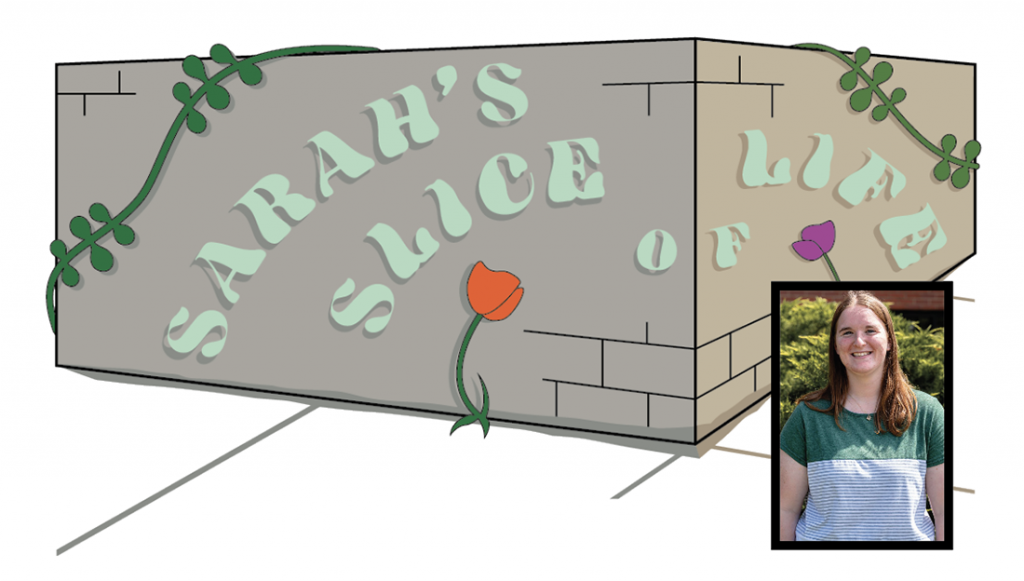There’s nothing macho about noticing a sunset, quoting poetry or loving the book “Gone with the Wind,” especially in a world that values how well someone can take a punch and give it back.
This is the reality of Ponyboy Curtis, the protagonist of S.E. Hinton’s book “The Outsiders.” Ponyboy is a “greaser,” a term used for the boys from the rough side of town, recognizable by their slicked-back hair, lean, hard muscles and smirks sharp enough to cut glass. They’re constantly at war with the Socs, the West-side rich kids who wear polo shirts and glittery rings as they drive around in cool cars.
Truly, Ponyboy’s world is one of survival, and his worth is largely determined by how well he can fight and how fast he can run.
Orphaned when his parents died in a car crash, Ponyboy lives poor with his two older brothers, Darry and Sodapop. They walk around the streets with a rough swagger, but they fear being jumped and killed by the Socs. To counter, they have gangs, switchblades and a consistently combative mentality.
In this world, not being tough will get you killed, which is why everyone thinks Ponyboy is strange for liking things like books and sunsets. He’s different because he loves things unnecessary for his survival, like colors, clouds and the soft shadings of the horizon.
Not many people appreciate Ponyboy’s more dreamy characteristics. However, Johnny, a friend of Ponyboy’s and a member of their gang, highlights their importance one morning when the two watch the sunrise.
Both are hiding out at an old church a town over, on the lam after Johnny killed a Soc in self-defense. One morning, they sit on the church’s front stairs and watch as the sun turns the valley below into a space of gray, pink and gold. The sight leads Ponyboy to quote Robert Frost’s poem “Nothing Gold Can Stay,” which astounds Johnny because the words give shape to his own feelings.
“You know,” Johnny says after. “I never noticed colors and clouds and stuff until you kept reminding me about them. It seems like they were never there before.”
Later, Johnny gets severely burned while rescuing children from a fire in the church, and he eventually dies from his wounds. His last words are to Ponyboy, reminding him about the true value of ordinary things.
“Stay gold, Ponyboy,” he says. “Stay gold.”
Johnny saw through the façade of his tough world and noticed things that Ponyboy always had — the sunset, clouds, dreams and innocence. Ordinary things and the actual beauty of the world are “gold,” and Johnny dies after realizing that survival stretches far beyond the physical.
Hinton’s book stresses how we as human beings need beauty in our lives just as much as we need shelter or food. Whether it be through noticing a pretty sunset or taking the time to admire the clouds, these ordinary things remind us that we need to feed our souls as well as our bodies.
The greasers fight tooth and nail to survive in a harsh society, but as Ponyboy says, you can see the sunset “real good” from both the East and West side. No matter where or when, we need beauty to give us new perspectives, sharpen our focus and connect us even when the world seems cruel and broken.
C.S. Lewis also understood this principle, and he valued things apart from physical survival, societal progress and productive efficiency. In “The Four Loves,” Lewis connects friendship to philosophy and art, saying all three don’t contribute to survival.
“Rather,” he writes, “it is one of those things that gives value to survival.”
This is what Johnny means when he tells Ponyboy to stay gold. It’s good to survive, yes, but what’s the point of survival if you can’t find the value in living? Ordinary things are the measures of God’s grace that ascribe value to our survival.
Johnny reiterates this sentiment in a letter Ponyboy reads after Johnny dies. Johnny has seen the world’s dark underbelly first-hand and suffered blow after devastating blow, but he still admires how Ponyboy “digs” sunsets.
“That’s gold,” Johnny writes. “Keep that way, it’s a good way to be.”
Tate is the Editor-in-Chief of the Liberty Champion. Follow her on Twitter

